jeffreylinda's blog
Gum disease is also known as periodontal disease. The disease begins with bacterial infection and can end up with another oral disease if not treated promptly. These symptoms are th indication that you need to visit a dentist in Houston as soon as possible.
Periodontal disease causes oral issues and can cause overall health issues. Sometimes the condition can develop painlessly without any indication and progress to an extreme level. You may notice some of the indications, and you must visit yourcosmetic dentistry in Houston to see signs or symptoms that are not common.

What are the goals of gum disease treatment?
Gingivitis Treatment aims to reattach the gums to the teeth, reduce the gums' swelling, stop the disease's progression, and reduce the depth of the pocket.
The dentist will recommend the treatment option after examining the growth of the disease and the stage. Options may include nonsurgical therapies to surgeries to restore the teeth tissue.
Difference Between Gingivitis and Periodontitis.
Inflammation in the gums is called gingivitis which happens before periodontitis which is gum disease. But suppose you treat the inflammation early before it develops into periodontitis. In that case, you may not have to face more difficulties, and it is easy to treat early.
Hence, the disease can be treated by taking good care of your oral health. Brushing and flossing correctly daily can reverse the condition. Visit the dentist's office in Houston if you have gum disease.
The early stage of gum disease is treatable; the build-up of bacteria in the plaque in the gums becomes inflamed and bleeds easily when you brush your teeth or eat fruit like an apple or guava.
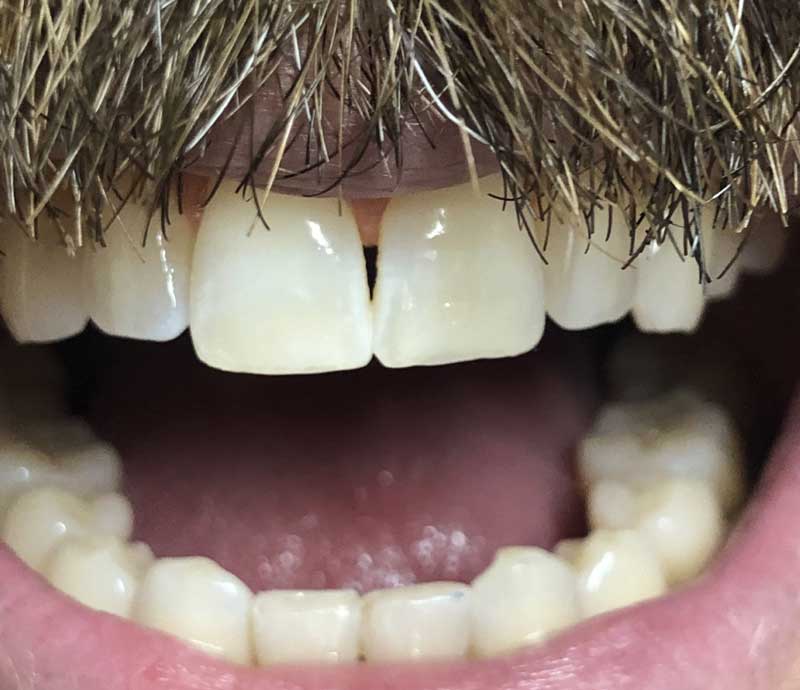 What are the leading causes of gum disease?
What are the leading causes of gum disease?
The infection in the gums is the beginning of gum disease. However, factors that can contribute to gum disease include:
- Certain types of infections and illnesses in the body can cause gum disease. This includes conditions such as cancer or HIV that can develop symptoms of gum disease. They can impact your immune system. People who have the disease have more chances of developing gum disease.
- Some medications can also impact oral health because they lessen the flow of saliva, which protects and affect teeth and gums.
- Habits such as smoking and eating tobacco can make gums prone to disease and make it harder for gum tissue to repair itself.
- Poor oral hygiene practices can also lead to oral diseases, like gum diseases. Habits like not brushing and flossing can develop gingivitis and other oral health issues.
- Genetics can also be a reason to have gum disease. A family history of dental disease can contribute to the development of gum disease.
Gum disease is reversible if treated on time. Left untreated can be a significant cause, and you may lose your teeth if you leave them untreated. Contact your smile cosmetic dentistry and visit your dentist if you notice any symptoms of gum disease.
Article source : https://www.articleslurp.com/what-are-the-major-differences-between-gingivitis-and-periodontitis/
A routine dental meeting with your Houston dentistry often implicates cleaning your teeth deeply and removing all plaque and tartar from your mouth, which is expected, in the dentist's words, is known as scaling and polishing. During scaling and polishing, your dentist pulls plaque and tartar from your mouth that is hard to remove with brushing and flossing before polishing the surface of your teeth.
For many people, scaling and polishing dismiss the build-up of plaque and tartar. Still, for some people, tartar can harden deeply and cause gum disease. In this case, the patient will require deep teeth cleaning from a professional.
Regular dental cleanings are necessary to maintain good oral health and hygiene. You may come to know the early rising of any disease before it becomes worse to manage or you lose a tooth. There are many types of cleaning your dentist may suggest to you the best.
Periodically, more than a standard cleaning by a dental hygienist is needed. If bacteria reach below your gum line, you may need a professional dental cleaning which means you need general dentistry Houston tx, to restore your gum's health.

How is deep dental cleaning different from regular cleaning?
Regular dental cleanings focus on teeth at and above the gum line. This is a standard cleaning that most patients should take every six months, and it plays a crucial role in maintaining good oral health. Dental deep teeth cleaning is also known as scaling and root planing, which involves special tools and techniques to clean and remove plaque, tartar, and bacteria underneath your gum line, deep in your tooth roots.
Deep dental cleaning prevents gum disease and stops them from advancing and causing tooth loss. Overall, the goal of regular cleaning is to avoid tooth loss and occur other oral conditions. The purpose of deep teeth cleaning is to stop the advancement of gum disease.
How can you know that deep dental cleaning?
Deep cleaning is optional for everyone. But suppose a patient suffers from gum disease, gingivitis, or another severe case of gum disease. In that case, your midtown dentistry Houston will suggest a deep cleaning to prevent tooth loss and stop additional deterioration.
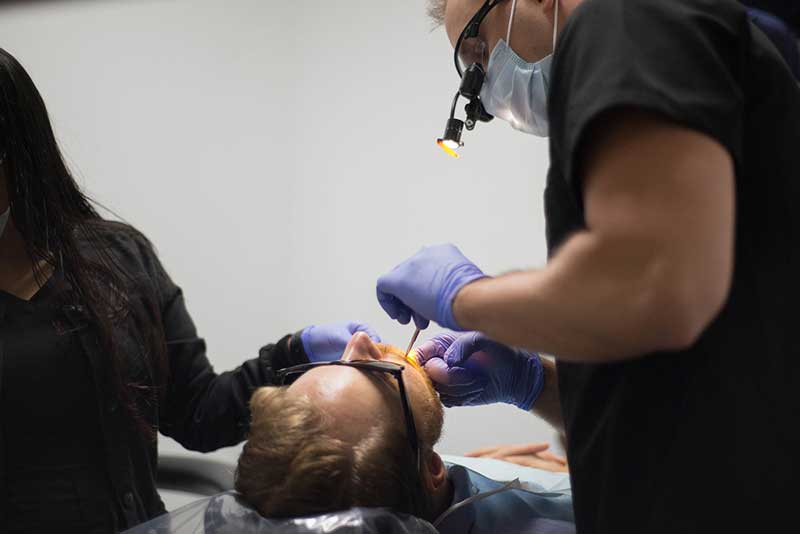
Sometimes gum disease will not show any symptoms, no pain or swelling, so it becomes difficult to know whether you need Houston deep cleaning services or not. However, some warning signs to look out for include the following:
- Bad taste or breath from mouth.
- Loose teeth can also be a sign of gum disease.
- Gums that are bleeding easily.
- Swollen, red, or tender gums.
- Gums that have drawn out from your teeth.
You should consult a dentist and know whether you are suffering from gum disease or there is another reason. Consulting a dentist is a must, and regular checkup is necessary to maintain good oral health. Your dentist will examine your condition and suggest the treatment you need to treat the disease. Contact a deep cleaning services Houston and discuss your oral issues. Make an appointment now.
Article Source : https://www.bloggingpalace.com/what-are-the-things-to-know-about-deep-dental-cleaning/
Dental crown treatment is an effective restorative option that can restore a tooth with damage, chips, or cracks. It has many benefits that only a crown can give compared to the other options. However, crowns have some disadvantages, and you should consider the best dentist to get the best treatment.
Dental crown Houston is a part of cosmetic dentistry. Crowns can be used for worn down, permanently stained, mishappen, or discolored teeth. A dental crown helps you get rid of all cosmetic issues. It is one of the most common dental restoration options to make your teeth usually function. A dental crown is a permanent cap that maintains and conceals your chipped, broken, or weak teeth. The dentist houston customizes crown dental Houston tx, to match the rest of your teeth set.
So now let's look at some advantages and disadvantages of dental crowns.
The Pros
Relieves Pain.
Crowns help relieve the pain you may get from tooth decay or any trauma that can be painful. But with the help of a dental crown, you can alleviate the pain symptoms, inflammation, and sensitivity on the tooth and nearby teeth.

Balancing Bite.
A bite should be correct. It is not only necessary for your oral health but for good digestion as well. The proper bite can chew the food properly and make it digest perfectly. This is also called malocclusion, which can negatively impact your chewing ability, leading to improper nutritional intake and poor health. Therefore, the crown helps to correct that issues too.
Long Lasting.
Houston dental crown can last longer than other restorative options. This can significantly benefit your teeth by protecting them from further harm due to tooth deterioration or decay.
Teeth Whitening.
Crowns give you an ever-lasting teeth whitening option. Dentists use porcelain or ceramic to create dental crowns. These materials whiten a tooth with a stain and prevent discoloration as you age.
The Cons
Cost.
The price of crowns can be a drawback. Although numerous variables may impact the cost, such as the type of Midtown Dental Houston crown and the treatments suggested by the dentist, the typical price is roughly $1000. Because every mouth is different, it will rely on your conditions. But insurance frequently comes in handy. For more information on what is and isn't covered about dental crowns, consult your provider and policy.
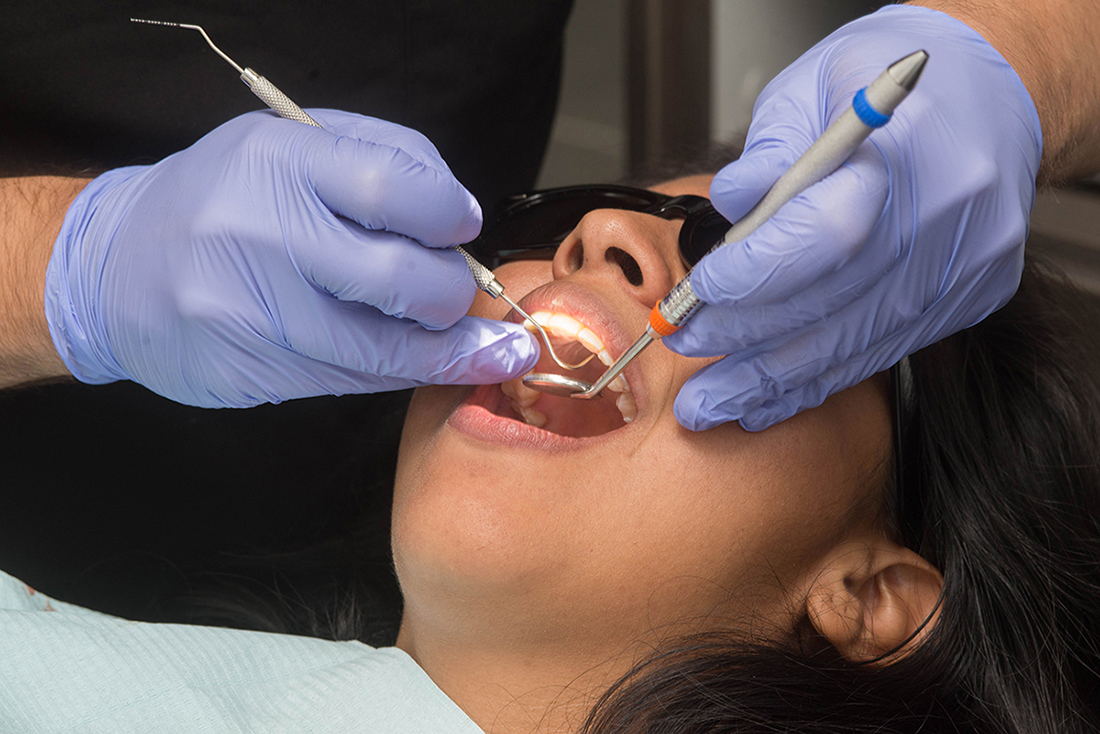
Nerve damage risk.
There are chances of nerve damage if a tooth is filed too thin. In this case, root canal therapy is an option; in the worst cases, complete nerve removal may need to be done. Your dentist will always check thoroughly to determine that your tooth can support the crown before filing.
Sensitivity.
Dental crowns can also cause tooth sensitivity to other teeth if the dental crown is too abrasive. It may wear on surrounding or opposing teeth, leading to sensitivity or even deterioration. Make sure to directly consult your dentist if you feel any pain or discomfort in your crown!
In Conclusion:
Crowns can be a good option for you, so talk to your dentist and make sure that it will go best with your teeth condition. Consult your dentist in Houston and make an appointment now!
Article Source : https://www.spiceupblogging.com/what-are-the-pros-and-cons-of-dental-crowns/
A Maryland dental bridge can restore your chewing ability, protect your other teeth, and improve your speech and pronunciation. The most significant benefit it gives is a beautiful smile.
A dental bridge helps fill the gap with one or more artificial teeth if you have one or more than one missing tooth, including the front teeth. They can last up to 10 years if you maintain good oral hygiene and regular check-ups. Pontics (a false tooth) is made from materials such as gold. They are commonly created from porcelain to merge with your natural teeth aesthetically.
The process of dental bridges usually requires two visits. On the first visit, the dental bridges Houston will put the temporary bridge. Then impressions are taken for the natural bridges. On the second visit, the dentist will place the permanent and remove the temporary bridge from your mouth. The dentist uses temporary cement to fix the dental bridge in place properly. After a few days, the dentist will examine the dental bridge to ensure it is fitting correctly and to determine whether adjustments are needed to be made.
But like any other process, there are complications during or afterward. Therefore, dental bridges can function as your natural teeth.
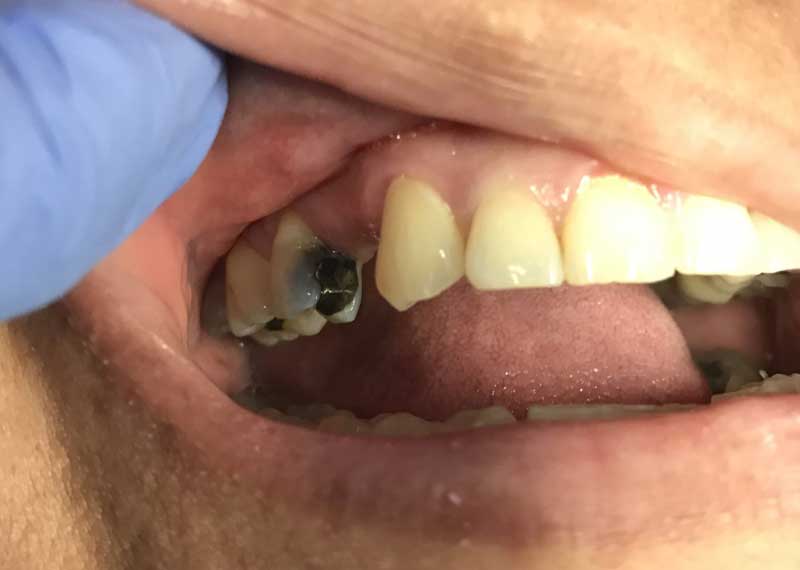
Common Issues With To Dental Bridges
If you feel irritation or any issue in your mouth, go see your dentist at the slightest bit of problem in your dental bridge. So that the problem doesn't reach into something more serious.
● Tooth decay
You may develop tooth decay with dental bridges, as it is common with dental bridges. Hence, you have to maintain good oral hygiene. When this happens, the tooth becomes unstable to serve as the foundation for the dental Maryland bridge.
To avoid this issue, you must maintain excellent oral hygiene practices, including brushing twice daily and flossing at least once daily. Also, visiting your dentist regularly is essential to ensure your bridge or teeth are in good condition.
● Damaged bridge
The bridges can get damaged if you eat anything hard. They are usually made of porcelain, metal, or a ceramic combination. They are not indestructible, so they can get damaged. So your houston uptown dentistmay suggest you eat with a little more care and avoid food that is sticky or hard to consume. You may have to replace it if the bridge's structure is damaged. It can also affect your gums, causing infection.
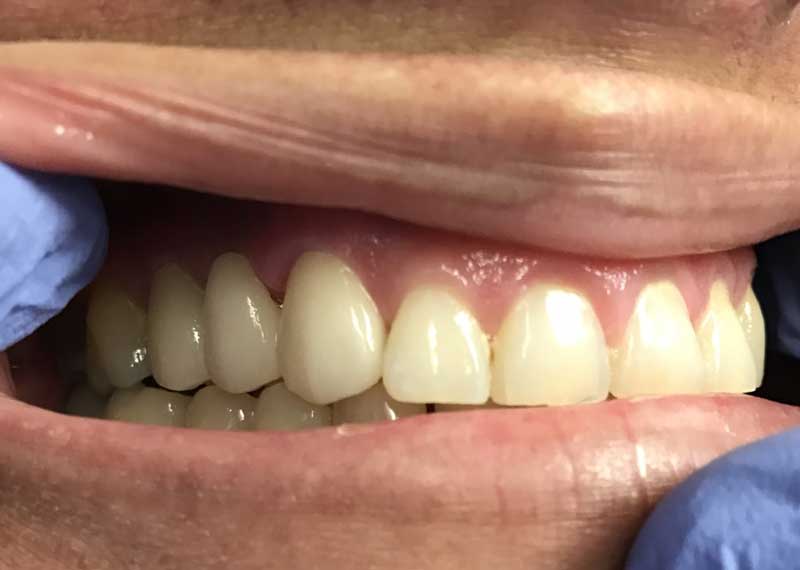
● Cracked tooth
It may or may not happen, but some chances may have cracks in the teeth that serve as an anchor for the dental bridge. If single minor damage is present there, it can lead to numerous problems in your teeth.
The most common issue is sensitivity. They can make a home for the bacteria if you do not treat the cracks, and it is better to treat them sooner.
To keep dental bridges healthy, keep your mouth clean and healthy. Use soft bristles to brush your teeth, as rigid bristles can give scratches on your dental bridge.
In Conclusion:
If you face any problems, you can visit your Maryland bridge dental near me and consult your problems. Your dentist will help you through it. Book an appointment now if you are looking forward to dental bridges.
Article Source : https://www.articleaffiliate.com/what-are-the-dental-problems-that-are-linked-to-dental-bridges/
